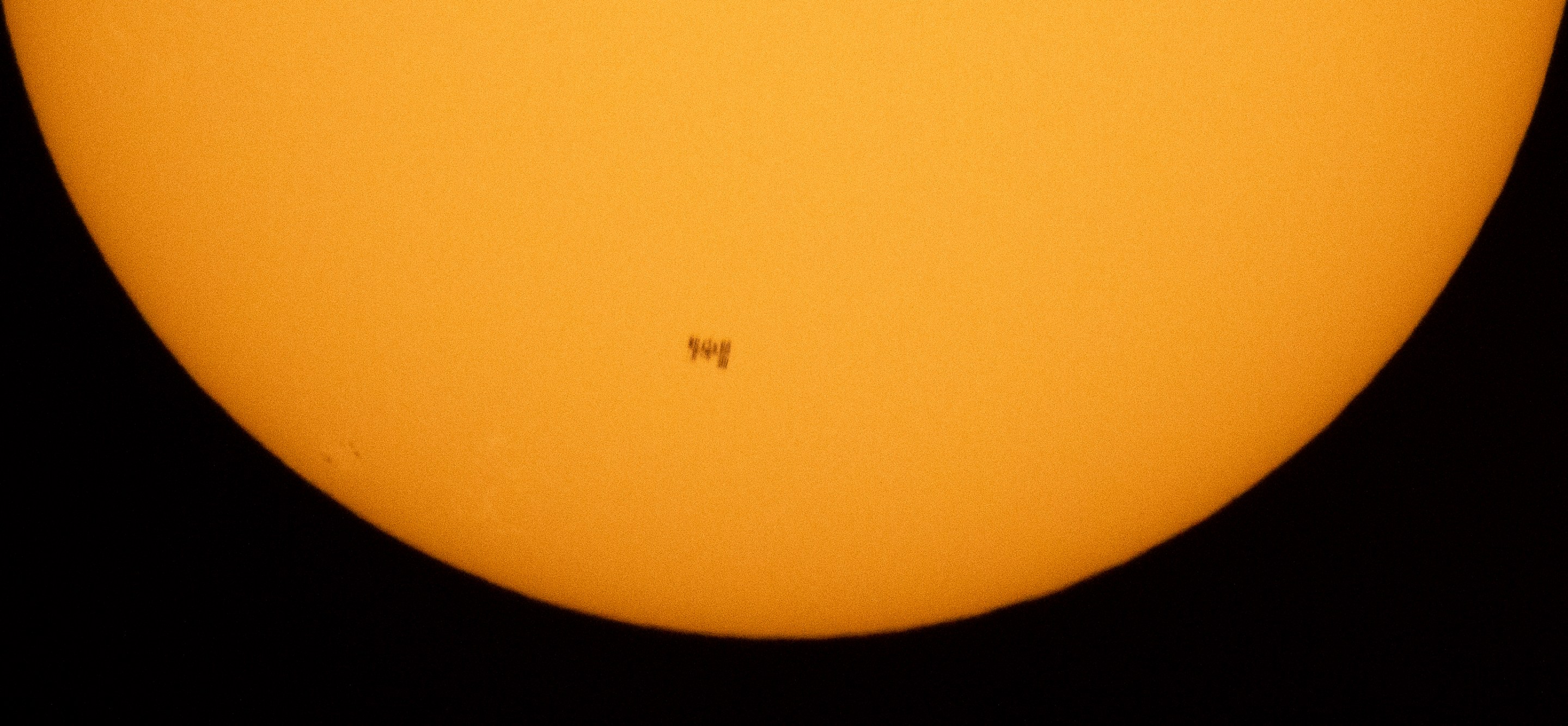NASA announced recently that the International Space Station will begin a series of retrograde maneuvers sometime between late 2026 and summer 2028, intended to lower the satellite's altitude and prepare it for de-orbit. Solar activity will determine when this process begins and how rapidly it progresses, but the goal will be a steep altitude loss climaxing in January 2031. How steep? Following a final series of maneuvers oriented to the South Pacific Oceanic Uninhabited Area, "operators will perform the ISS re-entry burn" and crash the poor sweet International Space Station into what is called the "oceanic pole of inaccessibility," where it will meet its watery end as a large field of debris.
Having never visited the International Space Station—and really this will be a painful lingering regret, for NASA—I don't think I can exactly say that I will miss it. Nevertheless I will be sad when it is gone. I don't remember any specifics from the first time I noticed it crawling along the night sky, but I still think it's insanely fucking awesome whenever I happen to spot it. I had the chance to track the ISS using a huge expensive telescope once, and that was very cool. However jury-rigged and structurally unsound the International Space Station may be by 2031, it will strike me in the nostalgias when it finally kerplodes and sinks to the bottom of the sea in a spot more than 1,600 miles from nearest land.
This will not be the end of humankind's low-orbit hijinks, not by a long shot. But it will for sure be the end of something, a thing that is even more worth mourning than that big hunk of orbiting science up there. Here, from NASA's announcement of its International Space Station Transition Report, is a paragraph that sends an anguished sob floating up my esophagus (emphasis added):
The International Space Station is a unique laboratory that is returning enormous scientific, educational, and technological developments to benefit people on Earth and is enabling our ability to travel into deep space. The Biden-Harris Administration’s commitment to extend space station operations until 2030 will enable the United States to continue to reap these benefits for the next decade while U.S. industry develops commercial destinations and markets for a thriving space economy.
Literally fucking NASA wrote this
There was a time, in my childhood and long before, when every kid who thought space exploration sounded cool imagined one day working for NASA. Beyond having a cool badge and literal space shuttles, NASA was wonderfully uncomplicated as a target for farfetched childhood ambitions. What they did was all the space stuff. If you wanted to fly a ship to space, that was NASA. If you wanted to make a huge telescope, that was also NASA. If you wanted to study the atmosphere of Venus, or grow fungi on a petri dish in zero gravity, or fling unmanned doohickeys into the far-off cosmos, purely to satisfy your own curiosity, the thing you imagined was getting a job with NASA. I don't even know if NASA did all of those things! But in the imaginations of ambitious kids and the American public, NASA provided the absolute highest summit of astronomical curiosity, and you got to be a national hero and wear a cool badge. No private outfit, with its vulgar commercial concerns and conflicts of interest, could possibly compete with the prestige and purpose and patriotism of the National Aeronautics and Space Administration.
NASA now imagines a future where it will quite literally rent astronaut time aboard Commercial Low-Earth-Orbit Destinations (CLDs) in order to continue to carry out its mission "to enhance knowledge, education, innovation, economic vitality, and stewardship of Earth." I for one do not feel super great about a public agency with that extremely good and wholesome mission having to negotiate with a fucking landlord for lab space, in space! I hate even worse than that a future where NASA is out of the shuttle game and out of the space station game, and so the coolest parts of astronomy and space exploration are no longer the domain of NASA, but are under the authoritarian command of megalomaniacal billionaire parasites like Richard Branson and Elon Musk.
Here's a super depressing exercise: Try to think of three other fields in our beshitted country where public sector agencies are among the upper echelons of career advancement, where a person could imagine landing the coolest job of their life in a government agency, largely free of commercial interference. Not that easy! To me a healthy society is one where smart ambitious people naturally flow into public-sector jobs, where they are motivated by curiosity and patriotism and wanting to do bitchin' things in rockets, and are not hired and fired according to the world-conquering appetites of some sicko billionaire freak. I want my spaceships to be designed and built by nerds who work for other nerds and are accountable to the American public, and I want them to be flown by jocks who can't imagine anything more badass than taming the fuckin' G-forces. I absolutely will not accept spaceships whose dimensions and capabilities are subject to the whims of Jim Spacefeller.
There's a section in one of the Michael Lewis books where he talks about how overmatched the Securities and Exchange Commission is, as a regulatory body, because all the best and highest-paying and most prestigious jobs in finance and trading are not in making sure the complex system works well and produces desired outcomes, but are in exploiting the loopholes and blindspots where it works poorly and produces undesired outcomes. Clearly this has worked out so great for the economy overall. It seems like a central aim of America's two political parties for the last several decades has been to produce this condition across all fields and industries, so that all public-sector agencies lose all prestige and become ineffectual, mediocrity-choked hall monitors for richer and more powerful commercial outfits, pursuing profit incentives and guided by an ever narrower band of nightmare investor ghouls.
A future where a space station built in a peaceful cooperative undertaking by five national space agencies is crashed into the ocean and replaced by a low-orbiting WeWork, where NASA—NASA!—pays rent into some billionaire's retirement account in order to continue doing mankind's great discovering in a leased laboratory, is a shitty future. Please simply crash the International Space Station onto my cranium.







